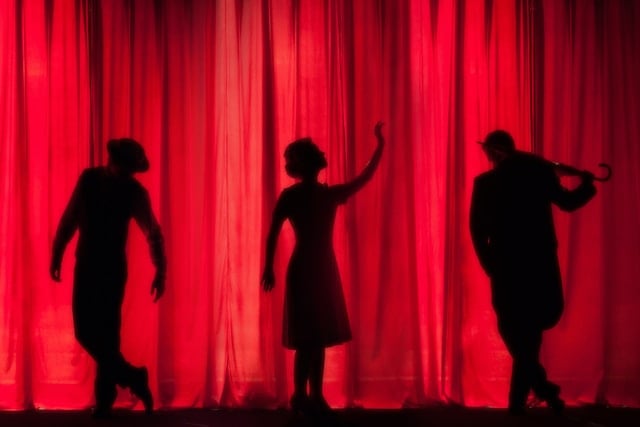Listen&Learn: History of theatre
Posted by: Jaksyn PeacockPre-listening vocabulary
- audience: a group of people who watch a show but are not usually part of it
- script: a text that includes the lines and stage directions for a play
- comedy: a humourous play with a happy ending
- tragedy: a play where the main characters experience suffering and often death
- satirical: using humour to mock or criticize something
- exaggerate: to make something sound extreme and ridiculous
Listening activity
Podcast: Play in new window | Download (Duration: 1:23 — 1.3MB)
Subscribe: Apple Podcasts | Google Podcasts | RSS | More
Gapfill exercise
Comprehension questions
See answers below
- The first known script comes from
a. Greece
b. Egypt
c. Rome - The single performer in an early Greek play was called
a. the lead
b. the antagonist
c. the protagonist - A satirical play
a. always has a tragic ending
b. has a religious purpose
c. uses humour to criticize something
Discussion/essay questions
- How often do you go to the theatre? Do you think movies have replaced traditional theatre? Why or why not?
- What are some examples of satirical stories? Do you think satire is an important kind of art? Why or why not?
Transcript
Many ancient cultures used performance to tell stories. Early performances often had no “audience.” People would gather in groups and act out scenes to each other. The first known script is the ancient Egyptian Passion Play, which tells the story of the god Osiris. In ancient Greece, outdoor theatres were built to display performances. The earliest Greek plays often had a single performer, who was called the protagonist. Over time, more complex comedies and tragedies developed. Throughout history, plays often had religious purposes. However, many plays were also satirical. They used exaggerated characters and plots to mock social institutions, including religion. For this reason, the theatre was often controversial.
Answers to comprehension questions
1b 2c 3c
Search for more Listen&Learn stories:
Subscribe to EnglishClub Podcasts
3 comments
-
Islam says:
I think you are doing a great gob thank you
-
karma salem says:
its pushing me practing my self on enghlish
-
Moufi says:
It’s so amazing to learn english with EnglishClub podcasts. Thank you
